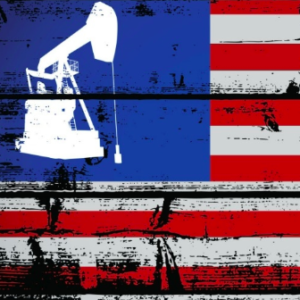ANUZIS: Investigation Into Oil and Gas Is Political Nonsense

Americans are facing a consumer confidence crisis as costs continue to climb and inflation crushes peoples’ pocketbooks. The 2024 inflation rate is still high at 3.4 percent, above pre-pandemic averages. And with federal officials making clear they plan to keep rates high and President Biden insisting he has already “turned around” the economy, it’s no wonder people are left scratching their heads.
Americans with fixed incomes are particularly susceptible to economic dips, with inflation and costs at the top of their minds. However, the security of our economic future and consumer welfare clearly isn’t the prerogative of policymakers whose job is to help alleviate financial burdens for Americans. Instead, they are full steam ahead on election-year politicking.
Take the latest move by Democrats in their crusade against American energy. Energy and Commerce Committee ranking member Frank Pallone Jr. recently launched a renewed focus on investigating oil and gas executives for alleged collusion and price fixing with officials from the Organization of the Petroleum Exporting Countries.
Unfortunately, to the detriment of the people, Biden and his progressive cabal are determined to use any agency, committee or platform to politicize the energy sector at a time when we need them the most. All in the name of politics.
Furthermore, their claims don’t hold much water given some important market indicators in the global energy marketplace. The data show that OPEC as an organization is foundering while U.S. energy has been booming in recent years, ramping up production that will offset OPEC supply cuts and contributing immensely to the American economy.
In fact, members of OPEC have been leaving for years, as Angola’s January 2024 exit follows others, such as Ecuador (2020), Qatar (2019) and Indonesia (2016). Market share among the remaining OPEC members declined to 27 percent, the same as during the pandemic. Unlike OPEC, global demand for fuel has since recovered and grown massively, along with U.S. supply steadily increasing since 2021 to reach 12.9 million barrels a day in 2023, according to the Energy Information Agency.
It makes no sense for systemic collusion to keep prices high and production levels down. The allegations against one energy executive directly contradict what the FTC itself has acknowledged: U.S. producers have led the world in production gains over the past few years, the only tool that will diversify market share and drive down prices.
The FTC’s formal complaint against Pioneer — the impetus for the letter from Pallone — acknowledges that U.S. output increases come from domestic production and that “U.S. production growth has injected new competition into the market and ultimately saved American consumers and businesses at the pump.”
This means the industry is actively working on expanding operations and keeping prices low, which Americans are seeing. If anything, the Biden administration has been more aggressive in its attempt to influence the members of OPEC. In October 2022, the president publicly begged the group to postpone oil cuts until after the U.S. midterm elections, all while simultaneously blaming U.S. producers for not doing enough to balance the market. If anything, Biden attempted to collude with OPEC over energy production and prices.
The question becomes: Well, why should we care? This issue is pertinent because the health of America’s energy economy directly reflects the health of the economy as a whole. According to Forbes, the United States became a net petroleum exporter in 2020, leading to a 2022 export total for oil of $119.37 billion and an export value of $75.02 billion for the first eight months of 2023.
Not only is this positive economic growth for businesses, but Americans also benefit at the pump. Oil prices nationwide have been declining overall since June 2022 after the Russian invasion of Ukraine, coinciding with record U.S. production to offset this. What we see here is U.S. production replacing OPEC supply cuts and Russian oil following global political upheaval, not collusion.
House Democrats have clearly piled onto this complaint to needlessly go after oil and gas companies for political gain rather than acknowledging that America’s booming energy economy has had material benefits instead of keeping prices high and competition low. This is a frivolous investigation request, and government officials must refocus on delivering financial relief for Americans.
This means attending to real economic issues like stagnation, inflation and everyday costs, not faulty collusion claims.
Please follow DVJournal on social media: Twitter@DVJournal or Facebook.com/DelawareValleyJournal



